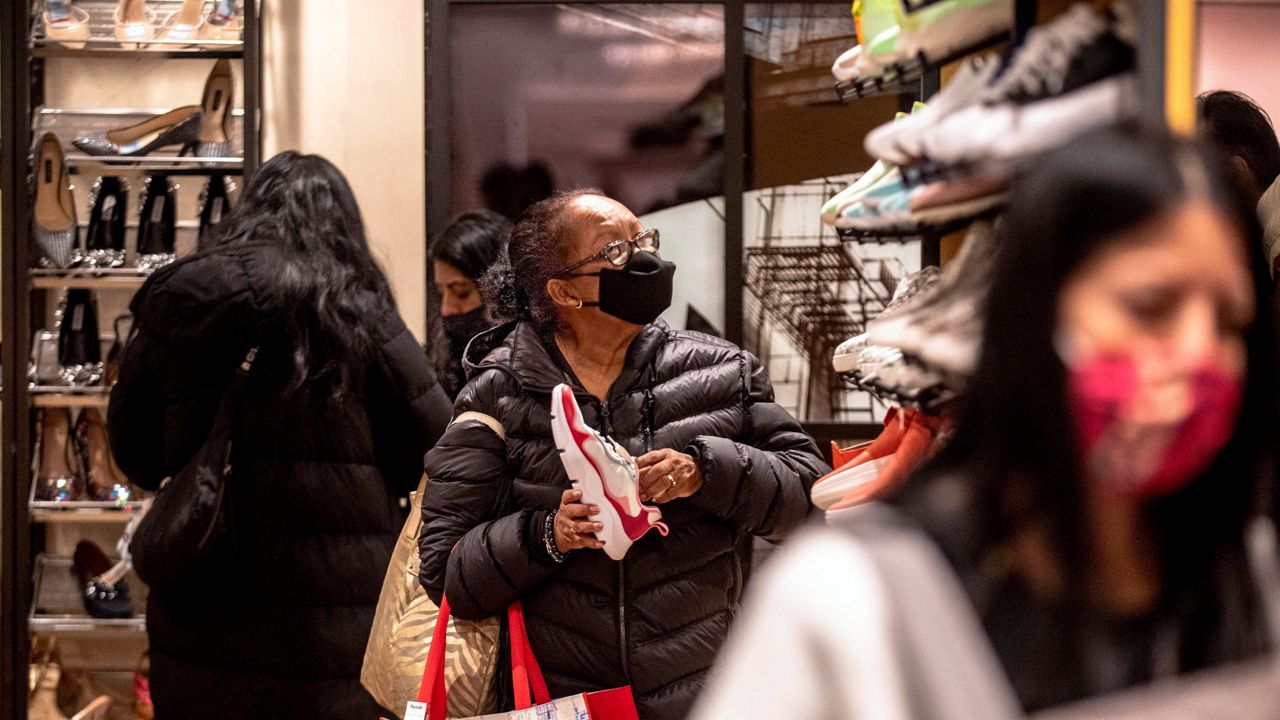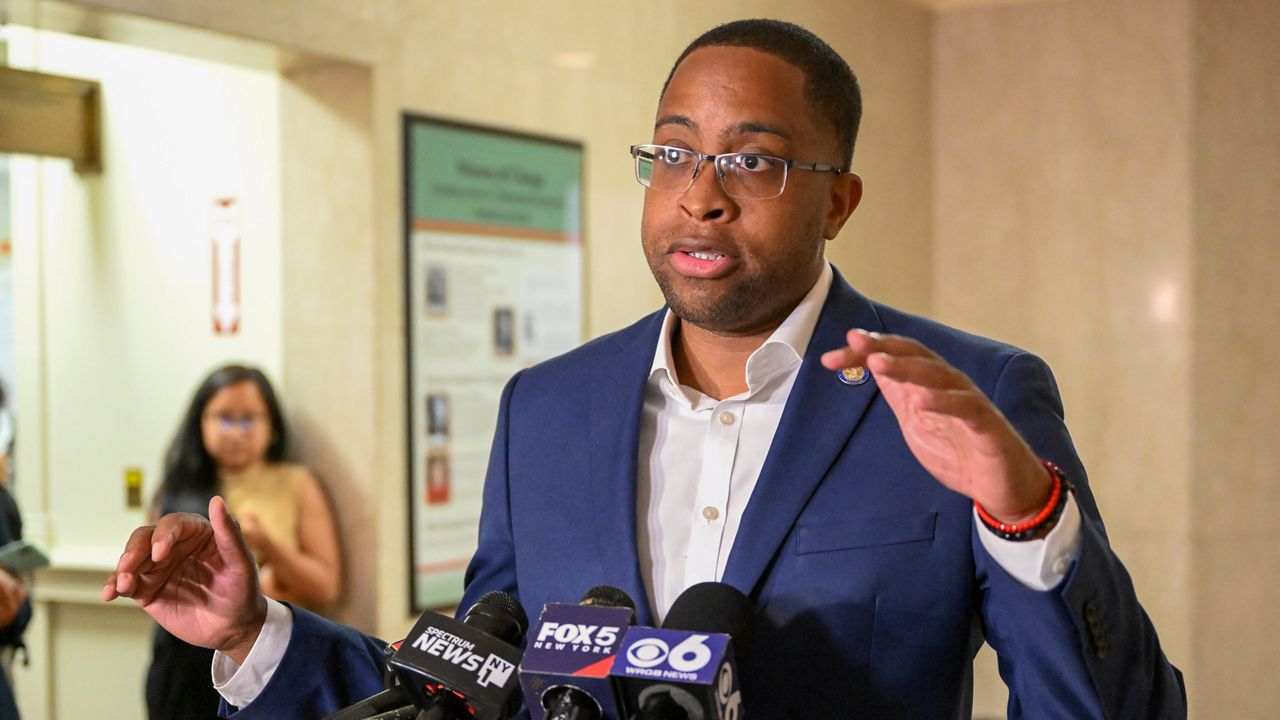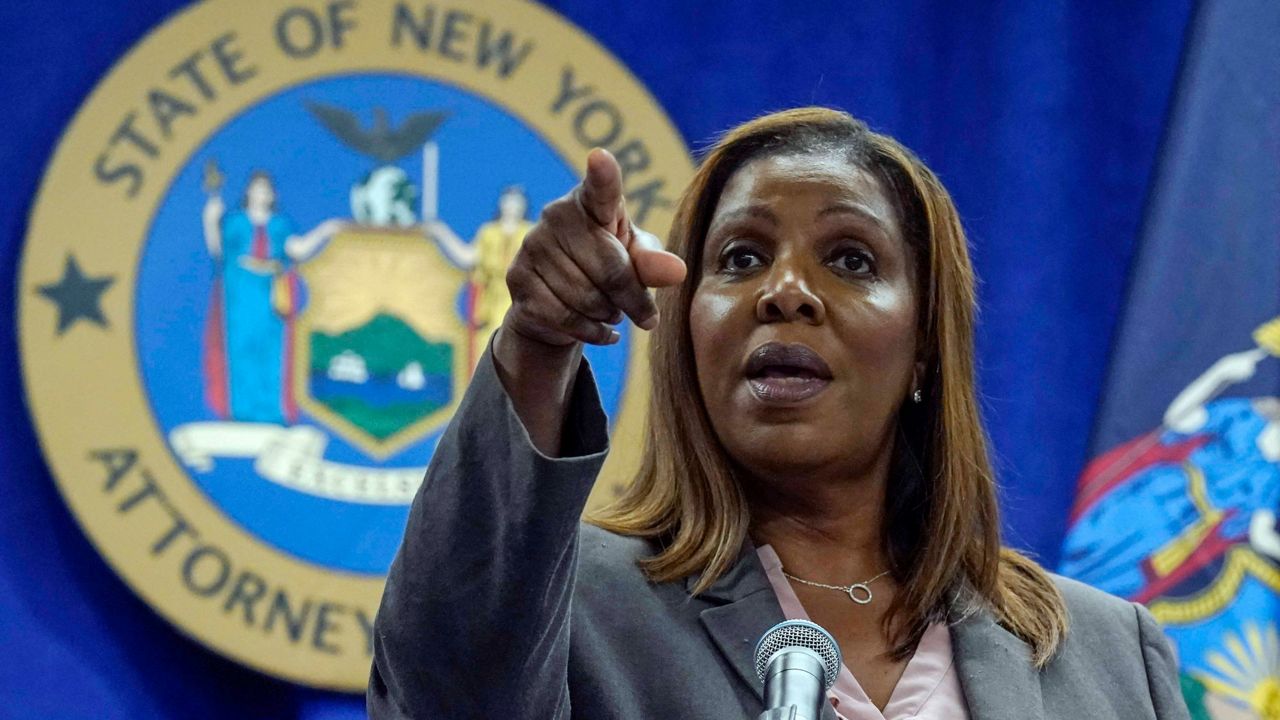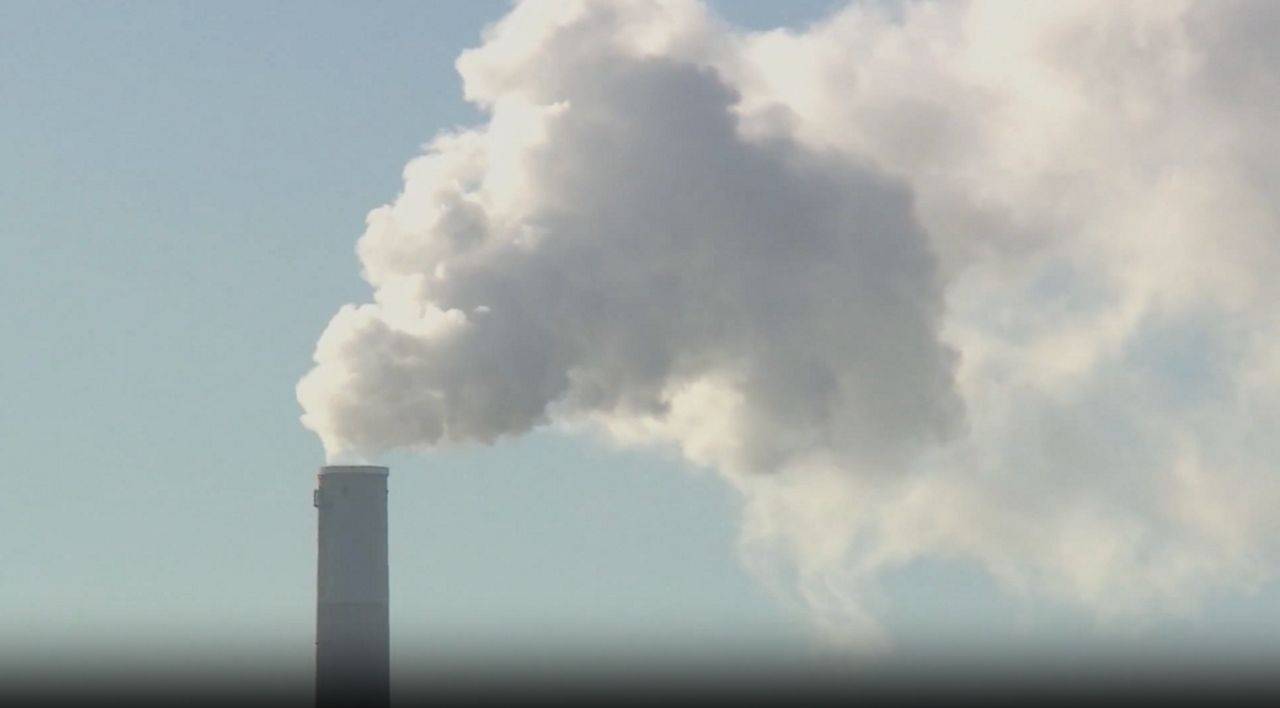Enforcement of New York's mandate for people to wear masks inside or require proof of vaccination will ultimately be up to businesses and county governments to enforce, Gov. Kathy Hochul said Monday.
Several county governments in upstate New York, including Madison and Rensselaer counties, have signaled they will not enforce the mandate, which requires people to wear masks indoors, or have businesses require people to show proof of vaccination before entering.
"We expect that they will, we hope that they will; it's in the best interests of public health," Hochul said.
COVID-19 cases in the last several weeks have increased across the state. State health officials have, at the same time, encouraged New Yorkers to get vaccinated or get booster shots.
It's Hochul's hope, she said, that New Yorkers will adhere to the mask rule -- adding she's willing to be "flexible" if the mask mandate leads to a reduction in cases.
"There's a difference of opinion. I do have faith in New Yorkers," she said. "The vast majority want to do what's right. They want to put this pandemic behind us."
Hochul added some county leaders are pleased with the mandate from the state level, making it politically easier to enforce.
"Every county is different and I've spoken to many of them," she said. "Some county executives have asked us to do this so they could have what I call 'air cover.' "
The mandate took effect on Monday as public health officials have raised concerns with the spread of omicron variant of COVID-19 and the potential for its rapid spread in New York. State health officials have also limited some elective surgeries and procedures at 32 hospitals, all in upstate counties, in order to deal with a staff bed capacity crunch.
Hochul on Monday said it was too soon to tell if the limits on those procedures, along with staff being bolstered by members of the National Guard, has had the intended effect of alleviating the stress on the health care facilities. The impacted facilities had 10% of their staffed bed capacity remaining.
"We are starting to see the bed capacity go up," Hochul said.
Nursing homes and long-term care facilities dealing with staffing shortages have struggled to accept new residents from hospitals, leading to a bottleneck and bed shortage.
"That's the one that keeps me up at night," she said. "But when they start putting stress on already exhausted health care system, this has been a long, grueling, almost two years, so anything we can do to alleivate that pressure cooker is one of my top priorities."










